
We are a team of Deaf and disabled and non-disabled researchers, artists, performers, writers, arts managers and theatre makers. Our research project is called Disability and the Performing Arts in Australia: Beyond the Social Model. It is funded by the Australia Research Council and is part of a long-running collaboration between Arts Access Victoria, and the Universities of Melbourne and Sydney.
Our project draws on the lived experiences of a diverse group of artists and academics, those who identify and those who don’t. We celebrate the expertise and creativity of disability artists.
Our inclusive arts workshops are our method:
See some of our publications:
Austin, Sarah, et al. “The last avant garde?.” The Routledge handbook of disability arts, culture, and media. Routledge, 2018. 251-262.
Little, Madeleine, Sarah Austin, and Eddie Paterson. “Hold on: Australian innovations in access aesthetics.” Australasian Drama Studies 76 (2020): 241-269.
Hadley, Bree, Eddie Paterson, and Madeleine Little. “Quick Trust and Slow Time.” The International Journal of Disability and Social Justice 2.1 (2022): 74-94.
See our new project: The Evolution of Disability Arts in Australia
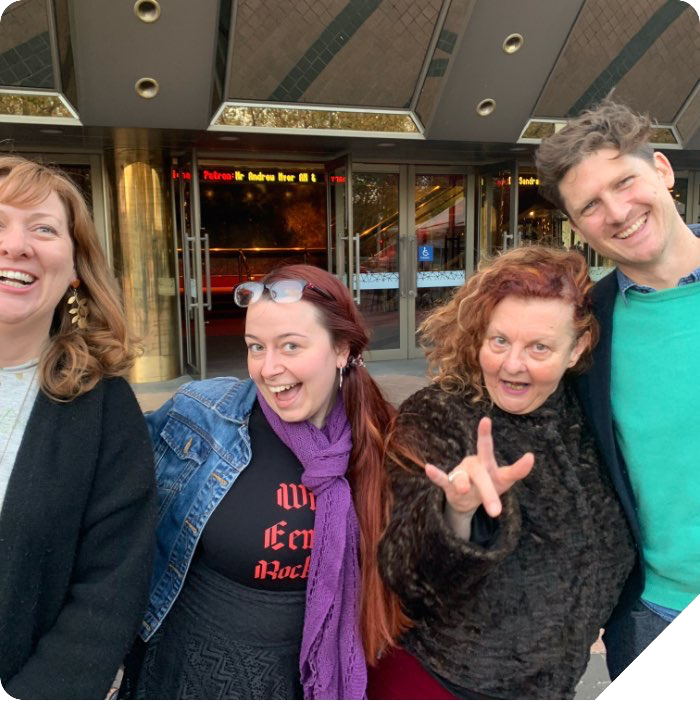

Our title The Last Avant Garde is provoked by British artist and Turner Prize nominee Yinka Shonibare who positioned Disability Arts as the last remaining avant-garde movement (Bragg 2007).
We are interested in this provocation because many forms of arts and disability are also marked by a willingness to reject, shift or subvert traditional ideas and aesthetic forms in favour of:
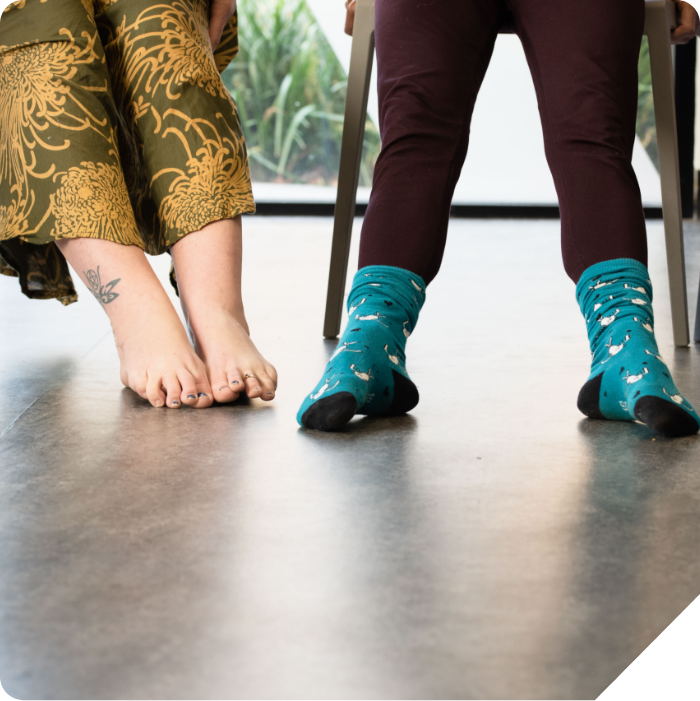
Our findings reflect our majority position as being disabled people researching Deaf and disabled artists. We are reporting from inside of the lived experience.
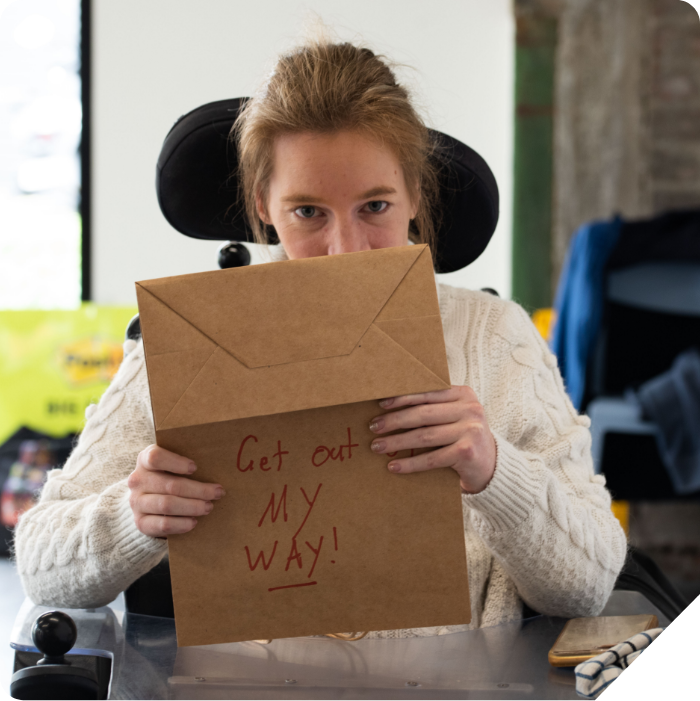
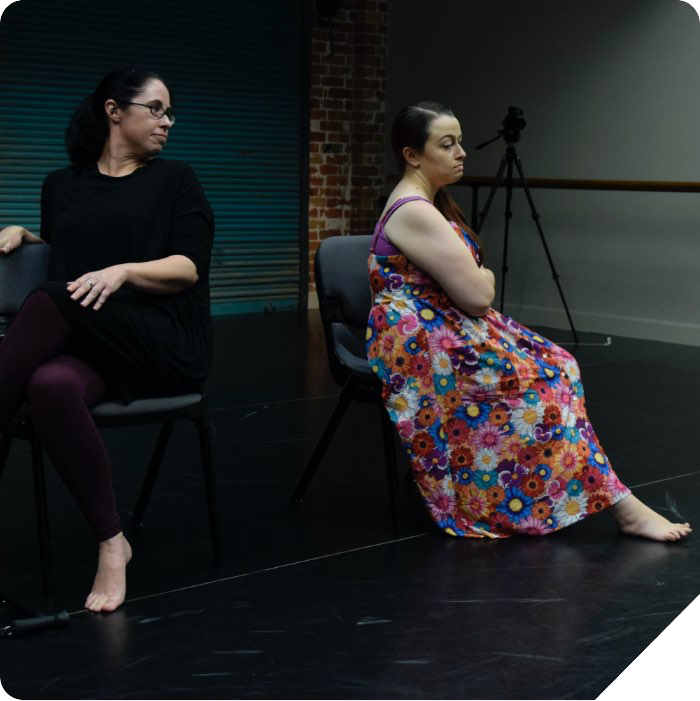
I’m a disability arts expert with long history of national and international experience. I’m an events producer, practice-led researcher, workshop coordinator, writer and producer, speaker and broadcaster, performance maker and lifelong artist/researcher.
It was momentous, planning and staffing eight national inclusive performance workshops. We trialled Quick Trust and Slow Time on each other. I especially commend Eddie Paterson for happily doing probably upwards of 60 meetings now, for never being scared to talk (and listen to me rant) about hard stuff. Eddie, Sarah Austin and Madeleine Little brought magical sorting powers to every tricky moment and made me laugh myself back to my senses.
Thanks to my core research crew and to Caroline Bowditch and our glorious partners at Arts Access Victoria. Huge thanks to Veronica Pardo, for conceiving of this project and ongoing inspiration. Additional thanks to our dear colleagues Professor Gerard Goggin, Associate Professor Bree Hadley, Dr Lachlan Macdowall and all the members of our Steering Group.
I’m an academic, poet and writer who’s been with the project from the beginning. I’m drawn to radical artists and artworks that shake norms and conventions. My contributions were to co-draft the proposal, get the team together and fan the flames. Being a core LAG researcher (or Kath Duncan’s Secretary!) I communicated with at least 500 people across academia, disability arts, arts orgs, the media and crews, editors, assistance technologists, venues, caterers, travel agents, access specialists and more. I’m been privileged to be an Invited Guest in powerful disability-led spaces. Watching our dream of involving Australian artists via play and experimentation, as opposed to surveys or interviews, are highlights of my life.
For me, disability arts is redefining live performance in Australia. My friends and colleagues are revolutionaries. And I’m proud to play my part as an ally in this avant garde.
My journey with arts and disability started in 2008 when I became Artistic Director/CEO of St Martins Youth Arts Centre, Victoria’s largest youth arts company. This is where I discovered inclusive theatre practice, and I haven’t looked back! In 2014, I worked with University of Melbourne and Arts Access Victoria on the pilot study Beyond Access; the Creative Case for Inclusive Arts, which seeded this project. I want to be part of the change within the arts industry and research and tertiary sectors that sees disability leadership, access and inclusion so embedded in creative practice and teaching pedagogy that the change we seek shapes the future of Australian arts practice.
I am a performer, writer, director, advocate and accessible theatremaker. I have worked as an Indelabilityarts ensemble member since 2015, and have performed with Restless Dance Theatre for Festival 2018 in Intimate Space, among other credits. I believe that Deaf and disabled artists should not just sit in community-based arts organisations or remain as participants of art-as-therapy initiatives, but should be given the opportunity to really develop their practice and infiltrate the professional, mainstream sector. Our stages and canvases should be representative of the culture in which we live.
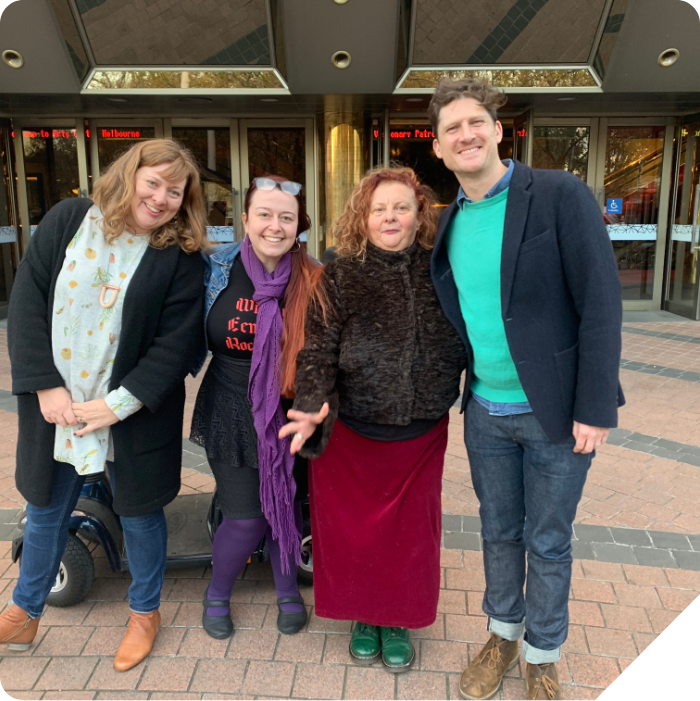
Caroline Bowditch
Gerard Goggin
Veronica Pardo
Bree Hadley
Gaelle Mellis
Katie Ellis
Lachlan MacDowall
Fiona Cook
Donna McDonald
Suzanne Whiteman
Angel Leggas
Qambar Ali Akhteyari
